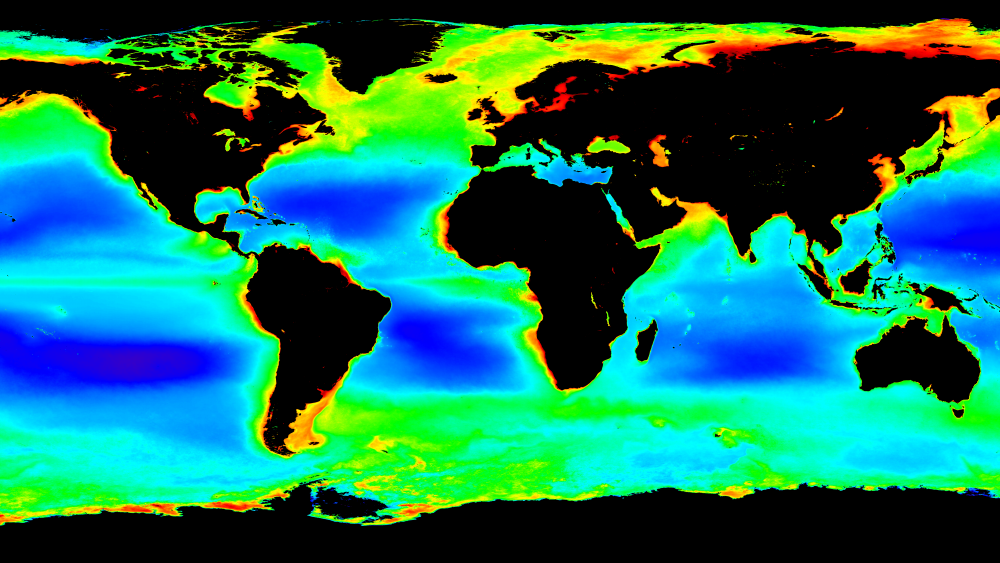
Satellite image showing a global Chlorophyll_a map that the team used for its analyses. Blue and green indicate a low phytoplankton biomass whereas red stands for a high phytoplankton biomass. | Image: Map freely available for reuse / NASA's OceanColor Web
Lake specialist Dr. Benjamin Kraemer and his team used freely accessible NASA satellite images to test for associations between temperature and phytoplankton content in 188 of the world's largest lakes from 2002 to 2016.
Based on experiments performed by others, the scientists expected that warming would decrease phytoplankton biomass in the world’s lakes. In contrast to their assumption, however, warm years were rather associated with higher phytoplankton biomass in most (68 per cent) of the lakes in their analysis. Kraemer explains that, “warming could increase phytoplankton content by expanding the growing season or by reducing the abundance of animals which feed on phytoplankton.”
Less isn’t always more…
In lakes that are phytoplankton-poor, warming was associated with reductions in phytoplankton content. In phytoplankton-poor lakes, by strengthening a lake’s thermal stratification, surface warming can trap nutrients below the surface layer of lakes: “This makes the nutrients unavailable to phytoplankton which reduces phytoplankton content and makes lakes clearer in warm years,” Kraemer explains. What may sound like a change for the better at first, might present its own challenges to lake managers such as the detrimental potential to reduce fisheries productivity.
…and the rich get even richer
Communities with lakes that are phytoplankton-rich – getting even richer in warm years – can take action to reduce nutrient inputs to maintain the (existing) water quality of lakes as they warm. Thus, the amplification of lake colours can serve as an indicator to tackle adaptive management efforts to prevent the deterioration of lakes as they warm.
Moving forward, the researchers plan to extend their analysis to include longer time series from more and smaller lakes. After all, most lakes in the world are small, so understanding how smaller lakes respond to warming will also be important to guide lake management: smaller lakes tend to be more productive and might thus be even more affected by climate change than large lakes.
Read the study in Scientific Reports >
Benjamin M. Kraemer, Thomas Mehner, Rita Adrian (2017) Reconciling the opposing effects of warming on phytoplankton biomass in 188 large lakes. Scientific Reports 7: art. 10762. doi:10.1038/s41598-017-11167-3




